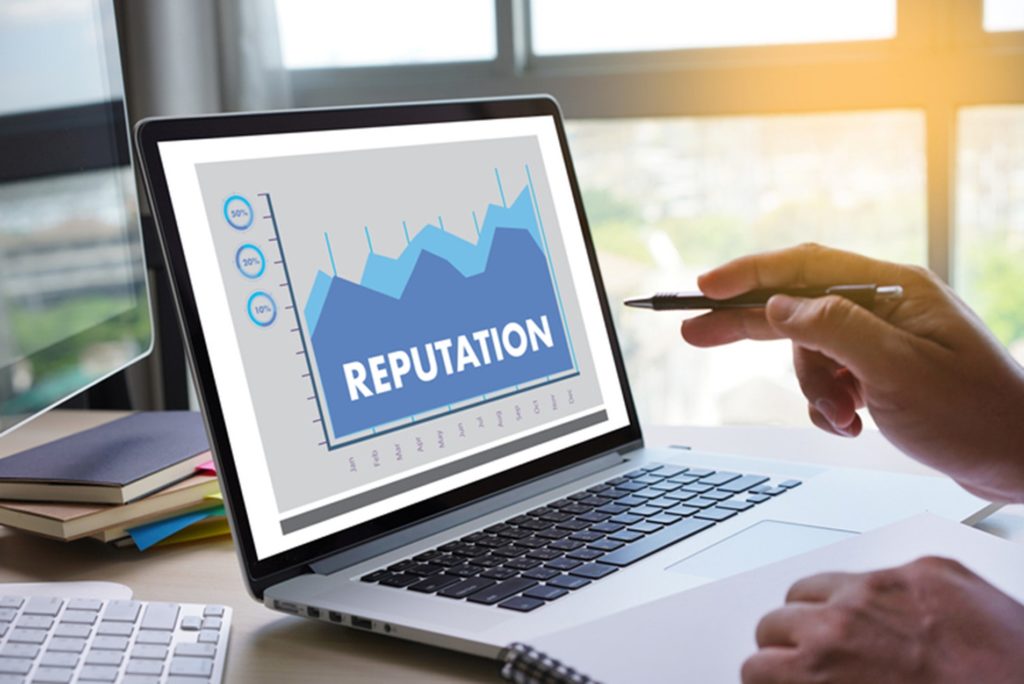Business Reputation Management in 2021:
What Has Changed and What You Need to Know
By: Adam Petrilli, NetReputation.com Founder & CEO

NetReputation.com was selected as an awardee in The Startup Weekly’s 2021 Exceptional Workplace Awards.
Maintaining a positive, relatable brand has always been an important part of building a successful company. Even in our highly polarized times, consumers tend to gravitate to brands they believe they can trust, and that aren’t mired in constant negativity, controversy and crises.
For better or worse, that trust is now built and reinforced online. And with more consumers than ever searching, researching, and interacting with companies on the web, just one negative comment, review, social media post or local news blurb is all it takes to undermine that credibility. Once that item goes viral, it can then create real and lasting damage to your brand image and bottom line.
In other words, it’s not just your reputation that needs attention these days, but your brand’s online reputation, which can often be tarnished or turned upside down with little-to-no warning.
Online Reputation Management Isn't New, But It Has Evolved
In general, the idea of repairing bad search results and managing your company’s digital brand is nothing new. Yet, recent changes to Google’s search algorithm, increases in search volume and major shifts in consumer behavior have drastically altered the online landscape, as well as how we react to it.
These changes have not only affected how and where customers find your brand, but also what you need to improve customer sentiment and maximize visibility across important industry keywords.
Here’s a closer look at several of these factors and how they continue to shape business reputation management in 2021:
1. Google Algorithm Updates Have Changed the Game
In its ongoing bid to improve search results, Google updates its algorithm at random times every year. Overall, these updates have signaled a shift in how Google values and ranks content, particularly in terms of relevance, authority and quality.
Some of the more notable Google updates over the last ten years include:
– Penguin – Launched in 2012, Google’s Penguin update marked the beginning of the end for spammy content and the black hat practice of buying links.
– Panda – First introduced in 2011, Panda was designed to catch “poor-quality” content before it could work its way into top search results.
– BERT – Also known as Google’s “natural language” update, BERT was released in 2019 to better understand context and improve results relevance for users.
So, what do these changes mean for brands and reputation management in 2021? While Google updates may lead to better results and content for users, they have also upped the ante for brands aiming to overcome online negativity and set themselves apart in search.
Ultimately, that means that for your reputation management strategy to work, creating quality, relevant content that addresses user intent is a must. Having a good plan for creating, optimizing and publishing strong brand content is now essential for pushing your way up search rankings, improving visibility and building authority and awareness on Google.
NetReputation customizes reputation strategies around quality, search-ready content creation plans, utilizing SEO expertise and technology to develop bios, blogs, articles and profiles that build authority, relevance and visibility on Google. We also maintain the flexibility needed to navigate unexpected Google updates and pivot our approach to ensure optimal brand presence in search.
2. Social Media Is More Influential Than Ever
It is true that social media already has sizable influence on modern marketing, playing an important role in how you reach customers and advertise your products. But in 2021, social platforms offer more avenues than ever to engage new audiences, cultivate trust and drive the narrative around your brand and industry.
Sites like Facebook, Twitter, Instagram and even YouTube allow your business to address customer concerns from a variety of angles, both proactively and reactively heading off crises while significantly boosting brand credibility.
A smart, robust social media strategy also helps close the gap between your business and your customers by sharing and promoting value-based content. This not only helps create more leads, but to build some conversational momentum around your brand that magnetizes customer feedback and improves customer loyalty.
Like it or not, social media is here to stay. It is also an essential piece in the online reputation puzzle, critical to building trust, shaping public perception and crafting a resilient, crisis-ready image for your business.
3. Online Review Platforms Are Now Central to the Buyer Experience
Consumers have always sought out the opinions and recommendations of others before making a purchase. But now that conversation is online, giving review platforms like Google My Business, Yelp and Trustpilot outsized influence on your reputation and what you need to manage your online presence in 2021.
So, how powerful are online reviews?
A recent survey found nearly 80% of consumers trust online reviews as much as a loved one’s recommendation, a number climbing to 91% among the 18-34-year-old demographic. It also found that more than 85% of consumers seek out online reviews of businesses before making a decision, while more than 90% say reviews have significant influence on whether to take the next step.
What about those online ratings? According to that same survey, more than half of all consumers won’t even consider your business if you have fewer than four stars.
Whether authentic or fake, glowing or downright malicious, online reviews have a tangible impact on trust and the decision-making process. The longer they are left unmanaged, the more customers they reach, posing a potentially devastating threat to your reputation and revenue.
The bottom line: no 2021 reputation management strategy can be truly comprehensive or effective without at least accounting for your online reviews. The risks of ignoring or dismissing reviews in your approach are just too great.






